Been a while since I want to scribble around this topic, but it got delayed over and over due to mainly procrastination (geez.. already?). But this topic has just recently gained its relevance when @yanuarnugroho did mention again on his timeline about how a PhD study looks like and what kind of person would benefit the most from doing a PhD. For Indonesian wannabe-PhDs, I recommend following @yanuarnugroho to get inspirations on what it takes and how it looks like to be a researcher pre and post PhD.
A little background info, I am only starting my PhD this week (well, only yesterday in fact I was enrolled). But I think I could offer you my perspective to what PhD means to me as I have been coming through quite a journey looking back. I also feel like sharing useful information so that any prospective PhD student may benefit from it.
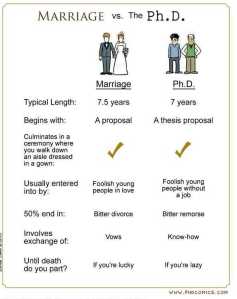 Now, there has been this enormous discussion in the academic circles about the value of PhD these days more than ever before. ‘The disposable academic’ may well represent the ugly truth of academic world (mostly in developed countries).Lots of PhD have been graduating only to find that there are fewer and fewer jobs available in the academic job market. A PhD generally would need to work for years as post-docs (which are non-tenured positions, of course) before they would find permanent jobs in form of lectureship or professorship, if they are lucky.
Now, there has been this enormous discussion in the academic circles about the value of PhD these days more than ever before. ‘The disposable academic’ may well represent the ugly truth of academic world (mostly in developed countries).Lots of PhD have been graduating only to find that there are fewer and fewer jobs available in the academic job market. A PhD generally would need to work for years as post-docs (which are non-tenured positions, of course) before they would find permanent jobs in form of lectureship or professorship, if they are lucky.
Though this problem may mainly be found in countries like the US, UK, Canada, Australia, and the likes, problems in less-developed countries are not less pressing. It has long been known (at least in Indonesia) that the remuneration as a lecturer and researcher is not among the highly praised ones. This makes the migration of academic jobs around the world not too easy. Unless you are a PhD student from developing nations, you probably find working as a lecturer in these countries less attractive. Even students from such countries would gladly look for more highly-paid professorship in other countries, if possible.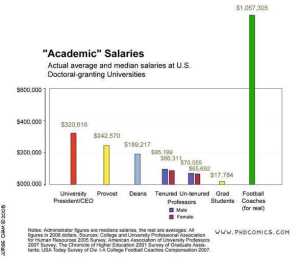
I am not an academic (not full-time though), so I may not be in a position to accurately grasp the motivation behind doing a PhD for career academics. But this gives me an even quirkier position to tell you why on earth I am doing what I am doing now.
Getting a PhD is not only about financial matters, I know. There are a lot more reasons like intellectual freedom (you’re still a student, though), the chance of being world expert in your field, or simply to add that 3-word title to your credentials. However, since doing a PhD generally takes a long time (3-4 years, or 5-7 years in US system), any rational man would at least measure the cost against the benefit of this investment. Again, the most easily quantifiable measures are the financial worth of your time and energy during that years and the years that followed too, good or bad.
While you’re at it, please consider what many PhDs would talk about their experience doing a PhD:
“Ultimate torture, hard work, and sometimes hopeless right from Day 1. The big chunk of your time will be so tedious you would end up hating reviewing the literature or fed up by transcribing that 20+ hours of interview data.”
“Let’s not forget the chance of finding a dead-end on running your experiment, survey, or data analysis.”
“You may also find a non-effective relationship with supervisors which only worsen your situation.”
“Lack of social life due to lacking time to do virtually anything (reading, writing, analysing, teaching, presenting, organising, and a good deal of administrative work on top of living your everyday life).”
“A lonely journey, as no one can understand your topic as much as you do. Not even the supervisors.”
“With this lengthy nature and uncertainty that most PhD projects have, the risk of failure is so high that you at times would feel like quitting due to worthlessness that you feel to your work.”
In the end, I have heard many stories about people unable to finish their PhD on time or simply leave it without ever graduating. Okay, quitting is not exclusively PhD’s business. But it is just so unfortunate that someone throws away the hours, days, months, and years that she has devoted her life into. Drop-outs are still high even in the final year of PhD.
So, if with that depiction you still aspire to become a PhD, then who are you actually? What are you made of? Don’t you have anything more useful to do with your life?
Now, @yanuarnugroho tweeted that a PhD is best for aspiring researchers and lecturers. Because PhD is essentially that. It prepares you to be an ethical, thoughtful, organised, and brilliant researcher all-around. What will you actually learn from doing a PhD? The answer in order of importance is (1) generic & transferable skills on being a solid researcher; (2) the expertise in your narrow field.
Hold on, what are those generic and transferable skills you gain during a PhD? Does that kind of skills matter in real-world jobs? What does actually a PhD do to the world surrounds him? Is there really an impact?
Stay tuned.. Wait for it in the next post.

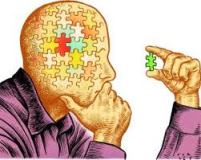

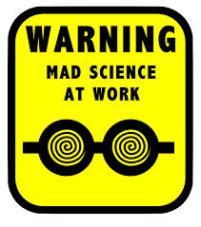
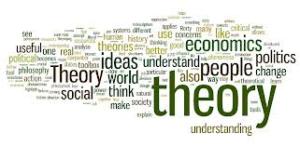
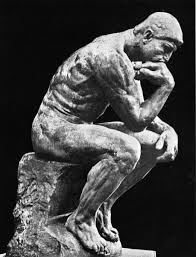


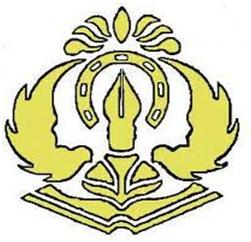 Kembali ke contoh, yang terakhir kali sempat jadi trending topic di milis alumni STAN adalah Ahmad Gozali, sang perencana keuangan syariah dari Safir Senduk & Rekan. Banyak sesama alumni STAN yang gak tau kalo beliau ini alumni STAN juga. Ahmad Gozali bukanlah satu-satunya alumni STAN yang sukses dalam mengarungi karir pilihannya. Banyak sekali alumni-alumni lain yang juga punya kisah sukses. Yang menarik, sebagai kampus plat merah milik Kementrian Keuangan, STAN ternyata tidak hanya menghasilkan birokrat handal. Banyak sekali alumni STAN yang juga sukses di jalur profesional, akademik, wirausaha, swasta, legislatif, dan lain sebagainya.
Kembali ke contoh, yang terakhir kali sempat jadi trending topic di milis alumni STAN adalah Ahmad Gozali, sang perencana keuangan syariah dari Safir Senduk & Rekan. Banyak sesama alumni STAN yang gak tau kalo beliau ini alumni STAN juga. Ahmad Gozali bukanlah satu-satunya alumni STAN yang sukses dalam mengarungi karir pilihannya. Banyak sekali alumni-alumni lain yang juga punya kisah sukses. Yang menarik, sebagai kampus plat merah milik Kementrian Keuangan, STAN ternyata tidak hanya menghasilkan birokrat handal. Banyak sekali alumni STAN yang juga sukses di jalur profesional, akademik, wirausaha, swasta, legislatif, dan lain sebagainya. A dead elephant leaves its tusks, a dead tiger leaves its stripes,
A dead elephant leaves its tusks, a dead tiger leaves its stripes,